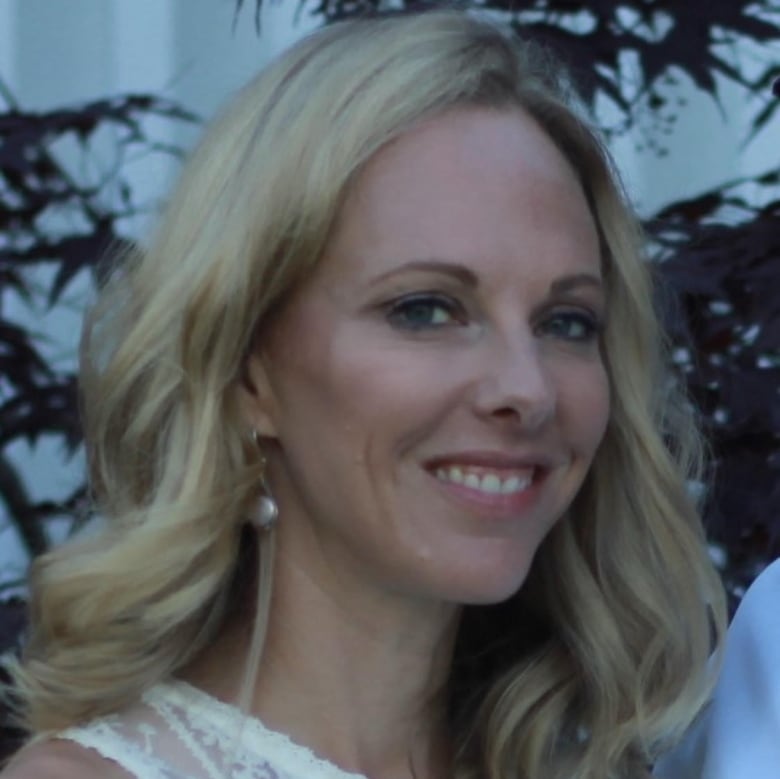Doctors seeing resistance to blood transfusions over unfounded COVID vaccine concerns | CBC News
Alberta physicians are raising the alarm about a dangerous trend — fuelled by misinformation — that could cost lives.
Dr. Stephanie Cooper, an obstetrician specializing in high-risk births at Foothills Medical Centre, said a patient recently refused to consent to a blood transfusion if it came from a donor who had received the COVID-19 vaccine.
“I see people with severe hemorrhage due to childbirth on a regular basis. And for me, the idea that this is out there is somewhat mind-boggling.”
It came up in a routine conversation while she was counselling the patient before a C-section. The patient did not end up needing a blood transfusion.
So- this was a first for me. A patient declined blood transfusion if the donor had received a covid vaccination.
—@DrStephanieCoo1
Shocked by what she’d encountered, Cooper shared her experience on Twitter and was inundated with responses, including from other health-care providers who reached out with similar stories.
“I’m quite concerned about it,” she said, noting Canada’s blood supply does not register the COVID vaccination status of donors.
“There isn’t a choice to receive COVID vaccine-negative blood. So by declining blood, it means you will die.”
Parents request unvaccinated blood
This is not an isolated incident in Alberta.
“We’re seeing it about once or twice a month, at this stage. And the worry is of course that these requests might increase,” said Dr. Dave Sidhu, the southern Alberta medical lead for transfusion and transplant medicine.
That includes parents of sick children.
“We do see a few, certainly in our bone marrow transplant patients in particular. You have to remember these kiddos are immuno-compromised and there’s always more sensitivity around these patients, and some of them can be quite frail,” said Sidhu, who is also an associate professor in the Cumming School of Medicine at the University of Calgary.
“Any caution or questions around that, we encourage our parents to ask.”

According to Sidhu, requests for so-called directed blood donations, taken from an unvaccinated parent or legal guardian, come with a number of risks and have not been accommodated.
So far, parents have agreed to proceed after he’s talked with them, he said.
And while some adults have ultimately refused blood transfusions, doctors were able to treat them in other ways.
“The real worry is situations where blood is needed and it is life and limb,” he said.
“There is currently no medical or scientific evidence to suggest that there are changes in people’s genetic composition due to these mRNA vaccines or any other issues with safety around blood from either vaccinated or unvaccinated donors.”
Internalized misinformation
According to Timothy Caulfield, a Canada Research Chair in Health Law and Policy at the University of Alberta, these situations are becoming increasingly common.
“It’s happening not just in Canada but really all over the world.… This is a really good example of a behaviour — of a request — that is the direct result of the spread of misinformation,” he said.
“This is based on the idea that either the blood is contaminated, the blood is going to give them COVID, that they believe the risks associated with the COVID vaccines are going to have some adverse impact on them. So basically they’ve embraced and internalized the misinformation associated with the COVID vaccines and fear the blood as a result of that.”
Caulfield said competent adults have the right to refuse treatment even if the decision could harm them.
“This really highlights, I think, how powerful misinformation can be. It can really have an impact in a way that can be dangerous,” he said.
“There is no evidence to support these concerns.”

Canadian Blood Services, which has an entire page on its website dedicated to this issue, said the health of patients is its top priority.
“Health Canada has not recommended or imposed any restriction on the use of the approved COVID-19 vaccines and blood donation,” a spokesperson said in a statement emailed to CBC News.
“This is because the blood of donors who have received non-live vaccines does not pose a risk to patients who receive a blood transfusion.”
On its website, Canadian Blood Services explains non-live vaccines “do not contain infectious bacteria or virus or other pathogens that can replicate in the vaccine recipient or cause an infection.”
Other such vaccines, including those protecting against tetanus, whooping cough and influenza, do not impact eligibility to donate blood.

It also addresses concerns vaccine-generated spike proteins, in an immunized donor, could be harmful to those receiving their blood.
“These claims are unproven and not substantiated by the safety studies required for regulatory approval of these vaccines, or from ongoing Canadian and international vaccine and blood safety monitoring,” the website states.
Meanwhile, David Evans, a professor in the department of medical microbiology and immunology at the University of Alberta, believes improving scientific literacy may be the best way, in the long run, to combat the wave of misinformation that is leading to these potentially life-threatening decisions.
“The reality is these vaccines have an incredibly good safety record,” he said.
“Maybe we should start looking at our biology curriculum and starting to ask, ‘what are we teaching our kids, what do we want them to know by the time they get out of Grade 12 about the way our biology works?’ Just enough to help you put into perspective what we’re talking about when something like this comes along.”
For all the latest health News Click Here

